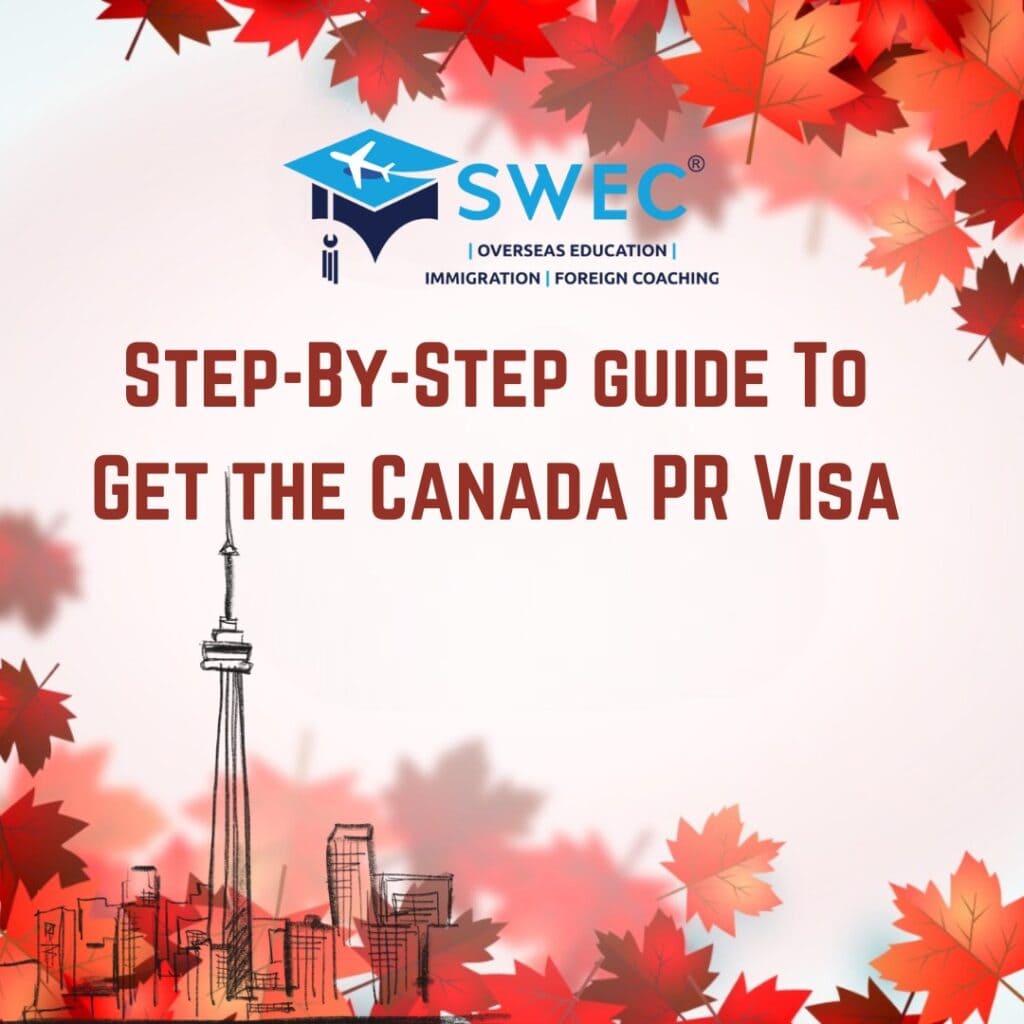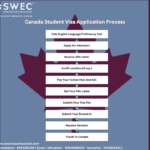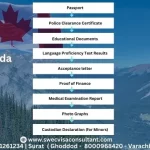
Traditionally, Indian immigrants have always focused on countries like the US and UK when it comes to education and moving abroad. The last decade has seen Canada emerge as a popular option for aspirants as well.
The cost of living and education in Canada is more affordable than other Western countries. Also, Canada\’s immigration laws are laxer than countries like the US and UK. These are the primary reasons to consider Canada over other countries, especially in matters of a PR Visa.
3 popular ways to get through the Canada PR process
- Express Entry
- PNP- Provisional Nominee Program
- Family Sponsorships
Eligibility for Canada PR
The following are the eligibility criteria:
You qualify if you score 67 points or more on a scale of 100. The following are the criteria they focus on:
- Language skills- 28 points
- Education- 25 points
- Work Experience- 15 points
- Age- 12 points
- Offer of Employment- 10 points
- Adaptability- 10 points
- You should work in an occupation that is in demand in Canada
- You must be proficient in English, and for some parts of Canada, you must be proficient in French. You will be tested on your speaking, reading, writing and listening skills. The test must be approved by the Citizenship and Immigration Canada. IELTS is a good test to prove English proficiency.
- You need to prove you have sufficient funds to support yourself during your stay in Canada
- There is no upper age limit, however applicants between the ages of 18-35 are likely to get the most points.
- You must have an education that is recognized by the Canadian education board.
- You must have sufficient and relevant work experience. Paid, full-time jobs have the most validity.
- Your occupation must be classified as Skill Type 0 or Skill Level A or B according to the National Occupational Classification.
- You do not need to have an offer of employment from an employer in Canada, but it is recommended as you will gain several points this way.
- You must also remember that your score will be affected by your spouse\’s score if they are accompanying you.
Canada PR Visa Documentation
The following documents are required:
- Passport
- Education Credential Assessment (if you have not completed your education in Canada)
- Proof of Funds
- Proof of Language Proficiency
- Proof of employment offer
- Certificate of Nomination (in case of provincial nomination)
- Certificate of Marriage or Divorce (if any)
- Personal Reference Code
- Express Entry Profile Number
- Job Seeker Validation
- Certificate of Good Health
- Certificate of Birth
- Passport-size photographs
- Police report verifying that you have a clean record
- Letters of recommendation
Canada PR Visa Application Process:
- Determine Eligibility: Determine your eligibility for a Canadian PR visa by assessing the different immigration programs available, such as the Express Entry system, Provincial Nominee Programs (PNPs), or the Quebec-selected skilled workers program. Each program has its own eligibility criteria, such as education, work experience, language proficiency, and adaptability factors.
- Language Proficiency: Take an approved language test, such as the IELTS (International English Language Testing System) or CELPIP (Canadian English Language Proficiency Index Program) for English, or the TEF (Test d\’évaluation de français) for French. Achieve the minimum required scores as specified by the immigration program you are applying for.
- Educational Credential Assessment (ECA): Obtain an Educational Credential Assessment (ECA) report for your foreign educational qualifications. This assessment verifies the equivalence of your educational credentials to Canadian standards and is typically required for most immigration programs.
- Create an Express Entry Profile (if applicable): If you are applying through the Express Entry system, create an online profile on the Immigration, Refugees and Citizenship Canada (IRCC) website. Provide accurate information about your skills, work experience, language proficiency, education, and other relevant details. Your profile will be assigned a Comprehensive Ranking System (CRS) score based on various factors.
- Receive Invitation to Apply (ITA): If your CRS score meets or exceeds the minimum score set in the regular draws conducted by IRCC, you may receive an Invitation to Apply (ITA) for permanent residency.
- Complete the PR Application: Submit a complete PR application within the specified timeframe after receiving the ITA. Provide supporting documents such as identification documents, language test results, ECA report, proof of work experience, police certificates, medical examinations, and proof of funds to demonstrate your ability to settle in Canada.
- Pay Fees: Pay the required fees for processing your PR application, including the application fee, right of permanent residence fee, and biometrics fee (if applicable).
- Background Checks: Undergo background checks, including security and criminality checks, as part of the application process.
- Medical Examination: Undergo a medical examination by an authorized panel physician to assess your health condition.
- Application Processing: Wait for the processing of your PR application by IRCC. The processing time may vary depending on the program and the volume of applications being processed.
- Receive Confirmation of PR: If your application is approved, you will receive a Confirmation of Permanent Residence (COPR) document and a Permanent Resident Visa (if applicable). This allows you to travel to Canada and become a permanent resident.
- Landing in Canada: Once you arrive in Canada, you will need to present your COPR and other required documents to an immigration officer. They will officially confirm your permanent resident status and issue your PR card or permanent resident travel document.
Canada PR Cost & Processing time:
The following are the costs:
| Fees | CAD | INR |
| Application Fee Processing Fee | 1,365 | 82,855 |
| Application Fee (Without right of permanent residence) | 850 | 51,596 |
| Including Spouse or Common-Law Partner Processing Fee | 1,365 | 82,855 |
| Including Spouse or Common-Law Partner (without right of permanent residence) | 850 | 51,596 |
| Including a Dependent Child | 230 | 13,956 |





